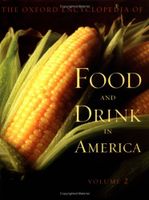Label
All
0
Clear all filters
Breakfast in the Developing Nation
Appears in
Published 2004
As the colonies developed into a nation, immigrants continued to enrich the American breakfast table. The Moravians settled in Pennsylvania, Georgia, and North Carolina, bringing with them a sweet, yeast-raised coffee cake, known as Moravian sugar cake. In Philadelphia, where Ben Franklin was defending the American breakfast of coffee and corn cakes to mocking Englishmen, the yeast-raised Philadelphia sticky—or cinnamon—bun, a specialty of the Swiss and Germans, became a breakfast staple.
In the South, the breakfast tradition of lavish hot breads continued. Beaten biscuits—so called because the dough was literally beaten with a rolling pin for thirty minutes or more—were the sure sign of a genteel, and slave-filled, kitchen. With the advent of chemical leavens at the end of the 1700s, the popularity of quick breads accelerated. Biscuits, pancakes, and waffles (which had formerly been raised with either yeast or beaten egg whites), chemically raised cornbreads, and cakes all became popular breakfast fare.
Part of
Advertisement
Related Recipes
-
-
-
-
Related Reference
-
-
-
-
Advertisement
The licensor does not allow printing of this title



